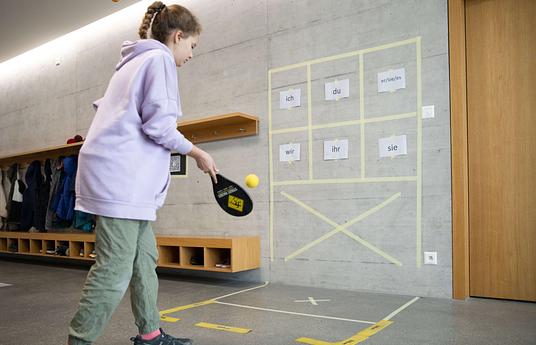We promote scalable solutions for innovative educational practices in student well-being. The Indian education system ranks 33rd globally, with 1 in 7 children being neurodiverse. Public schools lack resources for diverse needs. API uses arts to create inclusive environments and promote holistic development Aligned with SDG 4, SDG 10, and NEP 2020, API ensures interventions for all learners.
API uses diverse art forms to engage children in and out of the classroom. Grounded in cognitive neuroscience, human development theories, and Indian psychology, our one-year certificate course equips educators with evidence-based, experiential, and theoretical methodologies. Through 486 hours of learning, including direct beneficiary work, field immersions, and supervision, API fosters community and empowerment. API outcomes show statistically significant improvements in socio-emotional well-being among beneficiaries and increased opportunities for inclusion in educational and community settings.API promotes community engagement, advocacy for inclusive policies, and broader societal impact, fostering empathy and understanding for individuals with disabilities. Additionally, our proprietary curriculum ensures innovative and interactive learning experiences.
Since 2012, Snehadhara Foundation (SF) in Bangalore has led Arts Practices for Inclusion, helping 10,500 individuals and training 3,000 professionals in eight countries. The API course, since 2020, has trained 171 practitioners across India, Nepal, and Sri Lanka, benefiting 20,000 people. Awarded the Millennium Alliance Global Award, SF's reach spans multiple cities and countries. Main achievements include expanding the API course to India, Nepal, and Sri Lanka, and impacting vulnerable groups. Over the next 2-3 years, SF aims to train over 100 practitioners across India, Nepal, and Sri Lanka, extend to another South Asian region, and introduce the methodology in Bangladesh. They also plan to design a course for volunteers in relief camps in Manipur.
If you want to be a part of this innovation, nominate employees from your organization for our one-year API training. Each nominated educator will receive guidance from a dedicated Supervisor to ensure high-quality delivery of API sessions. We will consistently monitor and evaluate both the educator and the beneficiaries at your organization. Reach out to us at https://prajnadhara.snehadhara.org/



